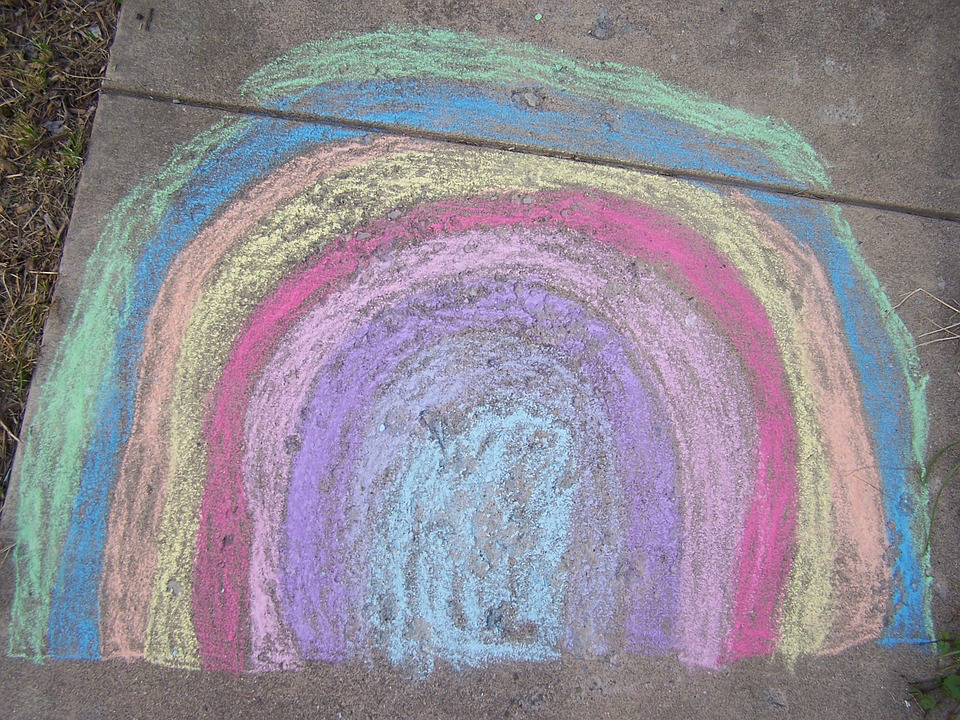Blog — Denise Long

How to Host a Grandchild's Birthday Party That Won’t Break the Bank
If your grandchild’s birthday is coming up, use these tips to plan a budget-friendly celebration everyone will enjoy. Fun for everyone!

Cool Hobbies for Cool Kids: Money-Saving Activities to Share with Children
Beyond Sidewalk Chalk - Some Very Cool Kids Hobby Ideas from Experiments to Making Music and More!
How to Turn Kids into Outdoor Explorers
Hi Walkie Chalk fans - we have our great friend Denise Long here with a fantastic guest blog! Take it away, Denise!
Outdoor Explorers!
Kids are naturally curious about their surroundings, and the best way to engage that curiosity and their senses is to offer plenty of opportunities to explore. Experts know that exploring nature has a powerful, positive effect on the brain. It also teaches kids to cooperate with others and to think creatively. So invite them to venture outside and experience the natural world’s magic.
Backyard Activities
Take children on a scavenger hunt walk and ask them to find different objects. Give them a simple camera with which to snap pictures of, for example, a bird, a red leaf, a flowering bush, or a yellow car. Set up a water table, fill it with toys and water, and let your kiddo go to town. Or, add a sandbox and hide “treasures” for your explorer to discover. A simple swing hanging from a sturdy tree branch provides hours of entertainment, as well.
Set her up with a set of child-safe binoculars and a magnifying glass. Find an ant trail and put a little crumb of food next to the insects — then watch what happens. Collect flowers and press them between the pages of a heavy book to dry, then use them to make crafts.
Keep in mind that older kids love outdoor play, too. By the time kids reach age 5, they’re still very curious and observant about their world. That curiosity leads to critical thinking and greater understanding. Let them take the lead so they can make discoveries first.
Create a treasure hunt for older kids. You’ll need an end prize and a map with plenty of clues. You could put clues in bottles scattered around the yard or write them on a jigsaw and scatter the pieces. Use invisible ink for a real challenge, or incorporate the natural world and use natural markings such as arrows on trees or ones made with piles of rocks and sticks.
For an even more high-tech treasure hunt, try geocaching. All you need is a smartphone with a GPS app to start, but you can also purchase a GPS unit specifically designed for geocaching. Geocaching involves a set of coordinates which you follow to a cache of hidden treats. Currently, there are more than 1 million web-logged caches scattered throughout the world.
Give a kiddo supplies and they’ll create art. A bucket of sidewalk chalk is perfect for creating a hopscotch game, amazing sidewalk murals, or racecourse for RC cars. Go big with Walkie Chalk®, a supersized sidewalk chalk with a holder that extends up to 36 inches and accommodates standard square and round sidewalk chalk. This tool alleviates the need to bend or sit down on the ground to draw — it’s perfect for parents, grandparents, kids, and people with disabilities.
Swimming and Pool Safety
We are attracted to water — it makes us happier, healthier, and brings us peace. Ask any kid and he’ll tell you that water’s perfect for splashing, jumping, and swimming. But a mix of water and children can be deadly. Nearly 1,000 children drown each year, and it’s the second-leading cause of accidental death for people ages 5 to 24.
To keep young swimmers safe, teach them to follow the rules. Keep your phone and other distractions away when you’re watching a younger, inexperienced swimmer. Don’t rely on swimmies, pool noodles, or other non-life saving flotation devices to protect your kiddo. Stay in the water with your child or put him in a Coast Guard-approved life jacket — or do both. Have older kids use the buddy system. Also, get your child swimming lessons. The American Academy of Pediatrics (AAP) recommends starting lessons by age 4. Set and enforce pool rules, including no swimming without adult supervision, no running, no diving into the shallow end, no pushing people in, and no dunking.
You don’t need expensive supplies to create a world of magic. Blankets and deck furniture transform into castles. Gardens become homes to fairy creatures. Cardboard boxes transmogrify into spaceships. Give kids space to create and watch their imaginations soar.
Photo Credit: Pixabay.com

GUEST BLOG: Connect With And Engage Your Grandchildren
Once in a while we love to feature a guest blog post and we do have a number of awesome grandparents who love Walkie Chalk - so, today we have our friend Denise Long and her wonderful post about how to engage with your grandchildren (feel free to also use a Walkie Chalk too! - Enjoy!
Connect With And Engage Your Grandchildren
Grandparents who have the opportunity and ability to spend time with their grandchildren have the ability to enrich lives and pass on family and cultural knowledge. Some grandparents, however, wonder how to stay relevant in kids’ lives these days, where technology and other distractions seem to drive wedges between generations. Although it requires a little work and planning, it is quite possible, and important, to connect with and engage grandchildren. Here are some tips on how to attract their interest and ideas on how to keep grandkids busy and interested.
Keep the goal simple
In connecting with your grandchildren, resist the temptation to be a super grandparent. Kids want and appreciate your time, will often be fascinated by your stories, and will want to spend time with you - although you may be competing with a device for attention. In order to make the process easier, focus on fun activities that are safe and that have an incidental educational aspect. You’ll likely find that the educational experience is a two-way street.
Teach a hobby
If you have a favorite hobby, such as gardening or woodworking, enjoy the time you spend with your grandchildren by passing on some of your interests. By learning your hobby, your grandkids will learn something special about you while they also learn a new interest or skill. If your children do not share your hobbies, then the activity may be completely foreign to your grandchildren. Some hobbies can spark interests that will last a lifetime. Woodworking, for example, may introduce a child to carpentry and other building maintenance skills, which are invaluable in life and can make a solid foundation for employment.
Gardening is a hobby that can be lost on younger generations who many say have lost their connection to food. With hectic schedules, weekday meals often come from fast food restaurants. Gardening combines science with the outdoors and culinary arts.
Teaching children about food can also extend to the kitchen. Families often have legacy recipes. They can be culturally important and you are the closest connection your grandchildren likely have to their roots. Seize the opportunity to pass on some recipes. When children learn to cook for themselves, there is a combination of joy - from eating tasty food - and health - from eating more wholesome meals. To ensure the kitchen time stays fun, make sure your kitchen is kid friendly, as safety is always the first priority.
Bring science into play
Kids love to discover. There are many ways to incorporate scientific discovery and knowledge in simple play games. Many kids these days are infatuated with DIY crafts and slime-making. To older generations the idea of making big vats of goo may seem ridiculous, but these slime-obsessed kids are learning about science in an artistic way. There are numerous tutorials online about how to make slime, but if your grandkids are in elementary or middle school, they will likely know all about it, have their own favorite recipe - maybe even an Etsy shop and a YouTube channel dedicated to their hobby.
Other fun, and messy science activities include making puffy paint. Since you are the grandparents, you can relax. Let the kids make a big mess - you should put down drop cloths and have everyone wear smocks - you can then teach them the importance of cleaning up.
Teach important lessons
Besides fun and games, grandparents are uniquely able to impart life lessons to their grandchildren. As the elder leaders of your family, you will already have a certain level of respect. Kids will look up to you, your achievements and honor you for being the foundation of your family. Use this opportunity to teach kids the benefit of hard work, and importance of giving back to their communities. Grandchildren may also not be aware of the hardships of life - that you may be closer to because of your own experiences or those of your parents. Without lecturing, share with your grandchildren the importance of counting their blessings.
Grandchildren are one of these blessings. And if your grandchildren are fortunate enough to live near you and have you in their lives, make your time together count. Have fun, learn, make some messes, and connect generations.
Denise Long of GrandMothering
Photo Credit: Pixabay
